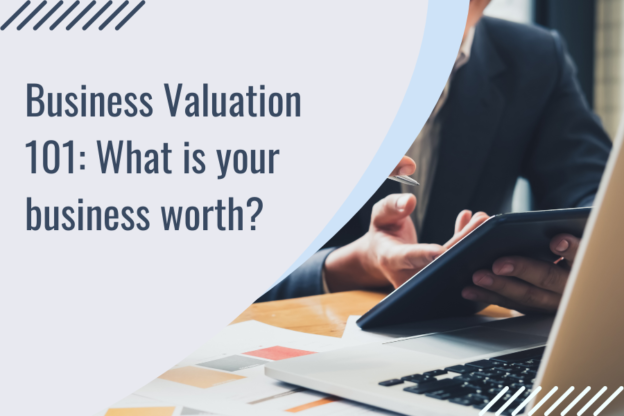Selling a small business can be a complicated process. Between determining the value of your business, finding a qualified buyer, maintaining confidentiality, and navigating the legal aspects of a sale (all while continuing to run your business), there are a great deal of moving parts.
It can be a lot to juggle on your own, especially when you add in the complexities of inflation and a high interest rate environment.
Yes, selling your business can be challenging, but it’s far from impossible…especially with the help of a seasoned business broker. If you’re thinking about selling your business, hiring a business broker can take some of the weight off your shoulders and ensure a smoother process from beginning to end.
5 Reasons To Consider Hiring a Business Broker
1. Certified Business Valuation
A business broker can help you determine a fair price for your company by completing a certified business valuation.
A business valuation is prepared by a certified, accredited valuation appraiser who analyzes data and reports on your business financials. To determine what your business is worth, they will analyze the sales of similar companies, industry trends, and other factors that can affect your company’s value.
Buyers like to see certified business valuations because they provide an accurate, unbiased representation of your company’s worth. Not only will this put prospective buyers at ease, but it can also benefit you as a seller, helping you negotiate a sale price and ensuring you don’t leave money on the table at closing.
2. Effective Marketing Strategy
Experienced business brokers understand what a buyer is looking for — such as uniqueness in the market, a good track record of sales and profit, recurring revenue streams, a profitable niche, and so on.
They know how to create a successful marketing strategy for your sale.
A good broker will create a marketing campaign that draws qualified buyers and shows your business in its best possible light. They will also help educate potential buyers on why your business will be a valuable investment for them.
Want help choosing the right business broker? Read our recent blog for tips to choose the right broker for you.
3. Manage Due Diligence
A business broker will help you navigate the legal complexities of a business sale by aiding in the gathering and organizing of documents and other important information needed for your sale. They can keep you up to date on the applicable laws and regulations your sale needs to comply with, as well as any necessary permits and licenses you should have in place.
Working with a business broker can give you peace of mind, knowing that the due diligence is properly taken care of so there are no last-minute surprises at closing.
4. Offer an Objective Viewpoint
Business brokers are not emotionally attached to your business, so they can offer an objective viewpoint that is crucial for a smooth sale.
The sales process can be emotionally wrought. A broker can help you maintain the objectivity needed for a successful sale, guiding you on best practices and what to expect throughout the sale and at closing. They can also act as an emotional buffer between you and the buyer if tensions run high during negotiations.
5. Maintain Confidentiality
Confidentiality is vital when selling your business. It’s important for the sake of your business, its employees, and its vendors. But it’s also a draw for buyers. When you sell your business, you want buyers to feel confident about purchasing your company, and maintaining confidentiality helps boost that confidence.
An experienced business broker knows how to market your business and find you a qualified buyer while also maintaining strict confidentiality. They’ll also obtain confidentiality agreements from all prospective buyers, ensuring your sensitive company information is well protected.
A broker can handle these aspects of selling your business (and more), so you can continue to focus on running your company. When you take all this into account, hiring a business broker is a no-brainer.
At OIB, our team of seasoned business brokers will utilize their experience for your benefit, helping you navigate the sales process through to a successful sale. Contact us to discuss your needs and get your business on the market.












